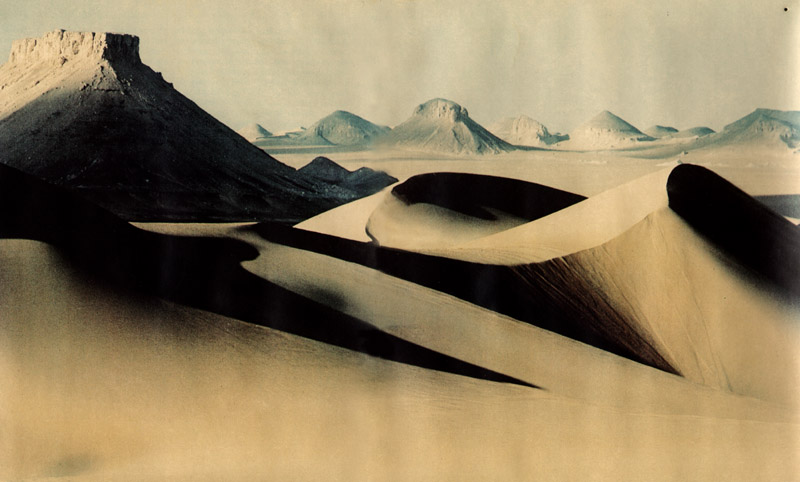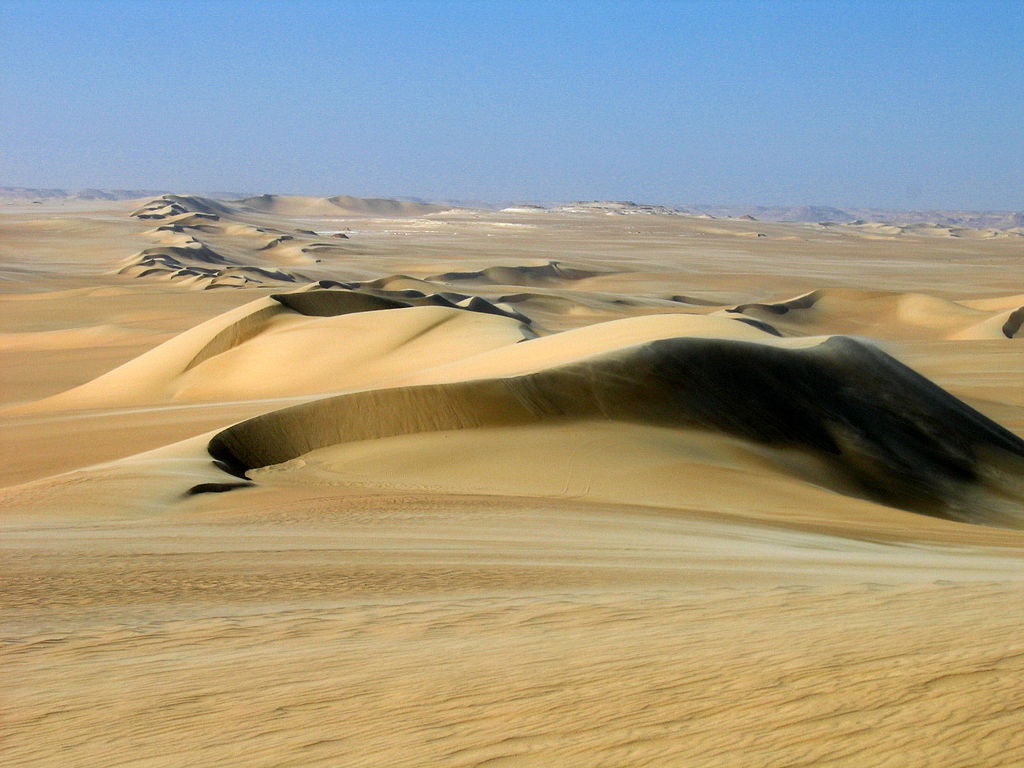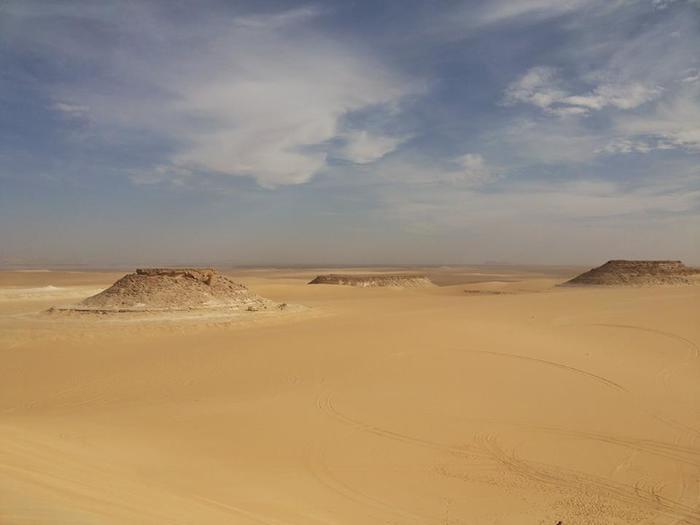ALEXANDER THE GREAT
AT SIWA IN EGYPT
VISIT TO THE TEMPLE OF AMUN
A TURNING POINT IN GREEK HISTORY
A MORTAL MAN IS PROCLAIMED
A GOD KING
A JOURNEY THROUGH THE DESERT
A WORLD OF DANGER AND MAGIC



One of the stranger events in Alexander the Great's time in Egypt was his journey to the temple of Ammon at the Oasis of Siwa. He had a desire to go to this temple because the Oracle of Ammon was said to be exact in its information, and Perseus and Hercules were said to have consulted it (Arrian). In addition to having a desire to emulate Perseus and Hercules, he also was interested in his own pedigree. Just as Perseus and Hercules were the son of Gods, he also believed that this was his situation.
However, if you understand the geography of ancient Egypt, this was a mind-boggling decision. The Oasis of Siwa is very hard and dangerous to get to. You have to travel along the coast. Then you travel across one of the most barren parts of the Sahara desert to this oasis.
Plutarch said the following about why the trip to the oasis of Siwa was dangerous:
"There are two reasons why the journey is dangerous: the first is the unavailability of water, which means that the route actually passes through desert for quite a few days, and the second is the possibility of a fierce south wind descending on travelers as they are passing over an immense area of deep sand. This, of course, is the wind which, in the famous story from long ago about Cambyses's army" (a Persian army that set out in 524 B.C. to supposedly destroy the temple), "whipped up a huge heap of sand until the plain was a surging sea, buried 50,000 men, and killed them. Almost everyone else took this into consideration, but it was never easy to get Alexander to change his mind once he had decided on a course of action. By yielding to his assaults, Fortune had strengthened his determination, and his passionate nature boosted his ambition until he became invincible against things. And not only his enemies, but even places and opportunities succumbed to his will (Plutarch)."
When Alexander made this journey, he left most of his army in Egypt, while taking a few friends, companions and guides. Now when Alexander made this journey, his party ran out of water after four days, according to Siculus. But then Siculus says the group was saved by a great storm of rain from the heavens, a rescue that he said seemed to have happened by "divine providence."
On Alexander's troubles in the desert, Plutarch wrote:
"At any rate, the help he luckily received from the god during this journey when the going was difficult has met with more credence than the oracles the god subsequently delivered — or rather, in a sense, the oracles had gained credibility because of these lucky events. In the first place, heavy rain and persistent showers from Zeus not only relieved them of the fear of thirst, but also smothered the dryness of the sand until it became moist and compact, and so cleared the air and made it easy to breathe. Again, when the markers which the guides were following were obliterated, and the travellers were wandering aimlessly around and getting separated from one another in their ignorance of which way to go, some crows appeared and took on the role of expedition leaders: they would fly swiftly ahead as long as the party stayed with them, and would wait for them if the others fell behind and slowed down. But the most astonishing thing, as reported by Callisthenes, is that the birds used their cries to recall any members of the party who went astray during the night, and cawed until they had got them back on to the tracks left by the rest of the party in its journey (Plutarch)."
Eventually Alexander and his party did make it to the temple, and they were greeted with a very warm reception.
Plutarch says that according to his sources, Alexander was met by the Siwan high priest who greeted him with the words "O, paidion", "Oh, my son", but mispronounced the Greek as "O, pai dios" meaning "Oh, son of god", much to Alexander's delight and amazement. (Plutarch).
Plutarch also said the following about Alexander's visit to the temple:
"Once he had passed through the desert and reached his destination, the prophet of Ammon gave him the god's greetings in terms implying that the god was his father. When Alexander asked whether any of his father's assassins had escaped him, the spokesman told him not to speak such sacrilegious words, because he had no mortal father, so Alexander changed his question and asked whether he had punished all of Philip's assassins. Then he turned to his empire and asked whether it was god's will that he should rule over the whole world. The god replied that such was his will, and that Philip had been paid the full quota of justice, and Alexander presented the god with magnificent offerings and the men with money."
There were also apparently some prophesies that would remain a secret.